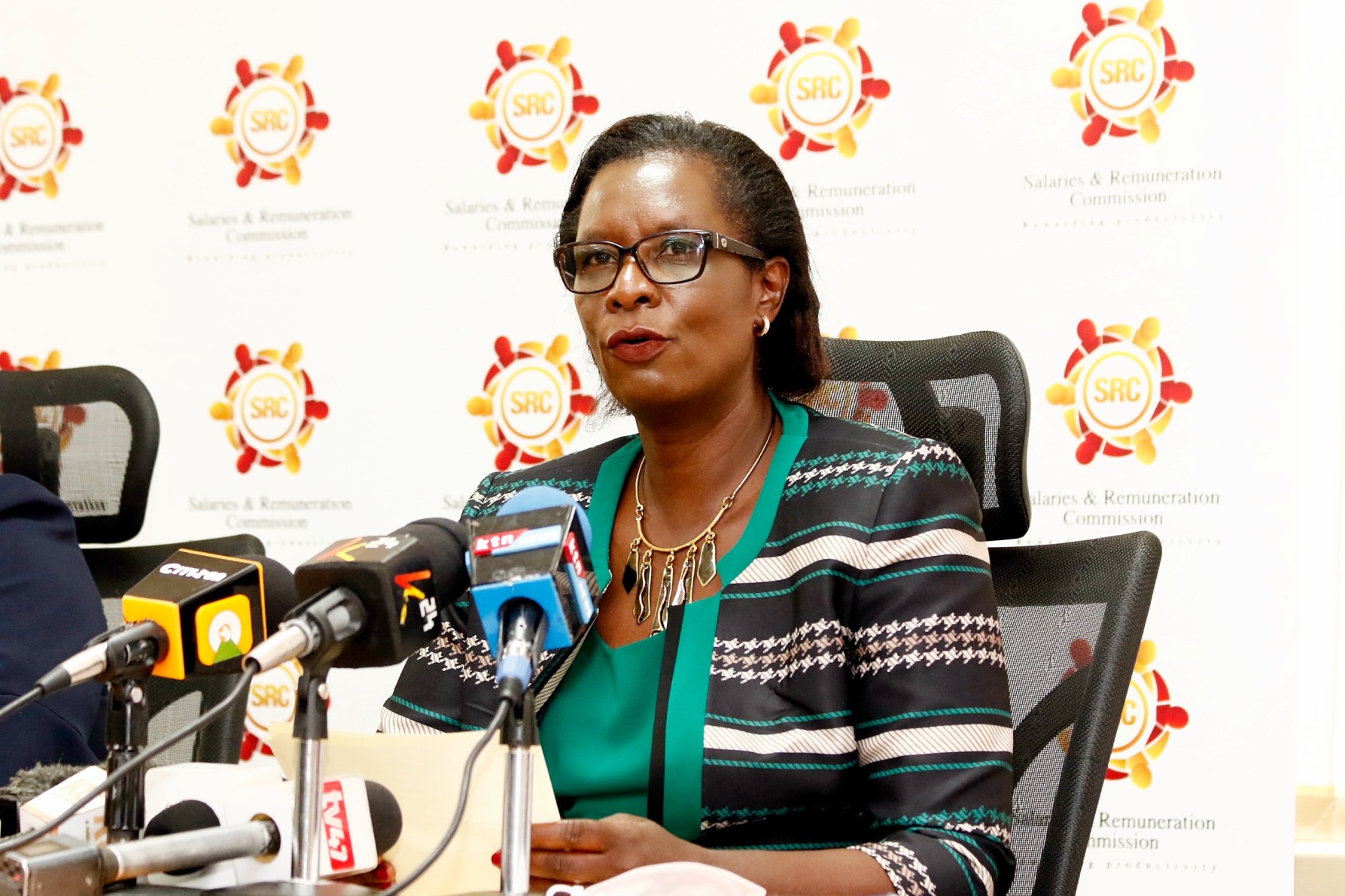SRC launches nationwide audit to streamline wage bill across all counties

The visits aim to engage county leadership and monitor adherence to the remuneration and benefits guidelines set by the SRC.
The Salaries and Remuneration Commission (SRC) has initiated a nationwide wage bill audit across all 47 counties to enhance transparency, foster partnerships for a sustainable wage bill, and improve service delivery within public institutions.
The initiative, which commenced on October 27, is set to last for two weeks, concluding on December 13, 2024.
More To Read
- SRC accused of fuelling turf wars among key public agencies
- Taxpayers could pay Sh15 billion annually for judges’ retirement perks, SRC warns
- Senate probe uncovers unpaid loans by ex-governors, county officials
- University lecturers dismiss SRC’s Sh3.1 billion offer for 2025–2029 CBA
- SRC nominee Thoyah Kingi vows to tackle ghost workers, strengthen payroll oversight
- Audit report puts SRC under fire over Sh7.7 billion university salary arrears
The comprehensive audit will involve meticulous Monitoring and Evaluation (M&E) visits designed to assess the management of the public wage bill and evaluate the implementation of remuneration and benefits across the counties.
Several teams comprising SRC commissioners and secretariat staff have already been deployed throughout the country to conduct the visits.
“SRC recognises that collaborating with stakeholders across the public service enhances the achievement of its mandate on the management of the public wage bill,” the Commission said in a statement.
The visits aim to engage county leadership and monitor adherence to the remuneration and benefits guidelines set by the SRC.
County governments are expected to provide essential data through an M&E digital system developed by the commission.
This M&E initiative builds on resolutions from the Third National Wage Bill Conference, which targets a wage-bill-to-revenue ratio of no more than 35 per cent by 2028.
Additionally, the exercise is intended to provide clarification on SRC circulars and agreements regarding necessary corrective and remedial measures.
SRC has been actively engaged in discussions with governors and county leadership to bolster collaboration in managing the public wage bill sustainably.
This effort follows the commission's recent disclosures on October 16, which highlighted the government's ongoing struggle to curtail its escalating wage bill over the past six years.
To address these challenges, the SRC has advised on adjustments to the Daily Subsistence Allowance (DSA), leading to the abolition of several allowances previously available to public service employees, including Cabinet Secretaries and Members of Parliament.
Further, various ministerial allowances for CSs, plenary sitting allowances for MPs, and taxable car allowances for CSs, Principal Secretaries, and judges have also been significantly reduced.
Treasury Cabinet Secretary John Mbadi had also urged governors to eliminate unnecessary positions within county governments, stating that these roles do little to enhance the efficiency of devolved units.
He pointed to the rising wage bills, which are hindering county operations, as a direct result of county leadership creating irrelevant offices.
Mbadi criticised county leaders for employing numerous advisors and placing them in roles he deemed redundant, thus wasting resources that could be better allocated.
“I understand the challenges you face in managing your wage bills. Many of the positions you create simply mirror those in the national government. Instead of duplicating these roles, we should advocate for their removal at the national level. They are pointless, and extra advisors do not provide any real value,” he told the governors during a meeting in Naivasha.
He also acknowledged that the national government grapples with similar issues, highlighting that many advisors in significant roles do not contribute effectively.
Top Stories Today












































